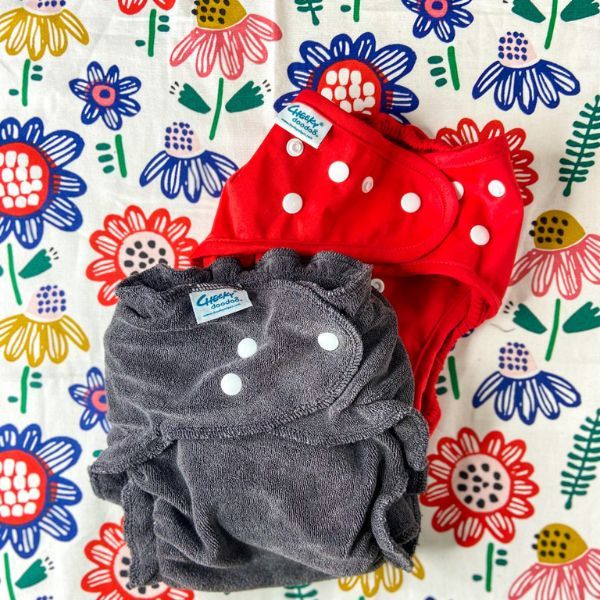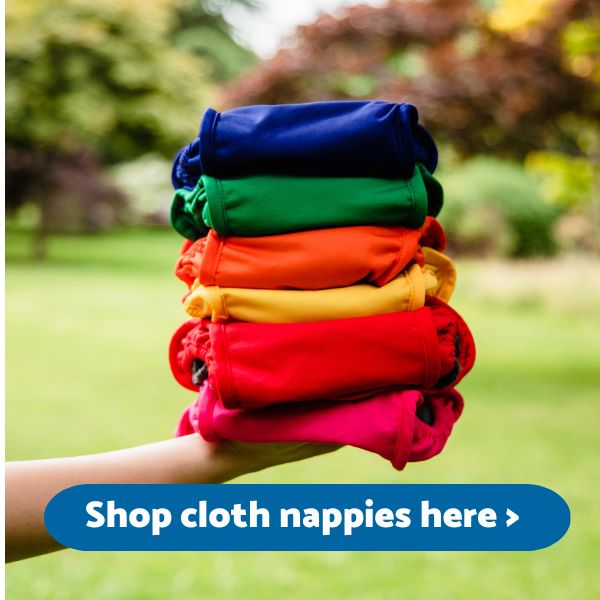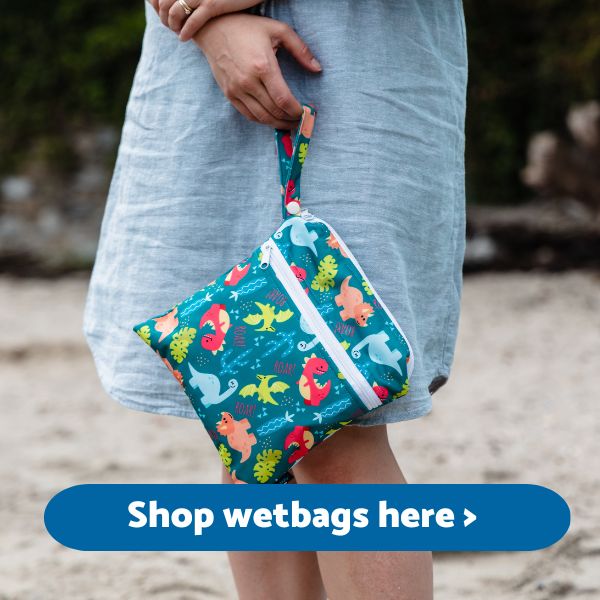The Pros and Cons of Reusable Nappies
Modern cloth nappies are becoming more mainstream as new parents try to lessen their impact on the environment. Committing to buy reusable nappies can be daunting. Reusable nappies have both advantages and disadvantages over disposable nappies. Here is our list of the pros and cons of cloth nappies -
- Environmentally Friendly
- Cost Savings
- No Exposure to Chemicals
- Kinder to Skin
- Custom Absorbency
- Can be used for multiple children
- Resale Value
- Less Smells
- Higher Initial Cost
- Increased Laundry Load
- Less Convenient
- Learning Curve
- Requires Consistent Routine
- Fit Issues
- Absorbency Issues
- Ease of Travel / Holidays
"Love these nappies - they fit well and provide good protection and coverage, and are very comfy for baby. Customer service is also top notch and they will go out of their way to help you.
I've been really impressed and happy with these, I've tried probably no less than 10 other types of nappies and these are the winners of them all and my go to." Lina, Trustpilot Jan '24
Pros
1. Environmentally Friendly
We all know we need to reduce our usage of single use plastics. Every disposable nappy ever used, right back to the '80's is still hanging around and they are expected to take hundreds of years to decompose in landfills leaving micro plastics to leach into our bodies and the environment. Eco friendly Reusable diapers produce alot less waste than disposable diapers reducing your carbon footprint.
2. Cost Savings
Although washable nappies are more expensive to buy initially they save money in the long term as they can be washed and reused over and over again, and can eventually be sold on. You can opt for birth to potty nappies to only buy once.
Buying preloved nappies can save you money in the long run. Used cloth diapers are a cheaper way to test out different makes and styles too before you invest in new ones.
3. No Exposure to Chemicals
Cloth diapers typically contain fewer chemicals and additives than single use diapers, which may reduce the risk of skin irritation, rashes and allergies.
4. Kinder to Skin
Babies skin can breath with natural fabrics like cotton and bamboo next to their delicate nappy area. The synthetic materials in sposies designed to absorb super fast can cause skin to dry
5. Custom Absorbency
You can adjust the absorbency of reusable nappies by adding or removing inserts or boosters, which can be helpful for heavy wetters or in night time nappies for overnight use. Two part nappies allow for higher absorbency as the separate absorbent inner and waterproof outer layer are bombproof!
6. Can Be Used For Multiple Children
The washable nappies you invest in for your first born can be used for all subsequent siblings and then be sold on when you are finished, or saved for your Grandchildren!
7. Resale Value
Reusable nappies hold their value especially if they are end of line or discontinued prints. It is possible to buy second hand and sell on at the end of the nappy years without losing any money or even breaking even! Make sure to strip wash any used diapers before using on your baby.
Parents find that reusable diapers produce less odours than disposable nappies, especially with a good wash routine.
Cons
1. Higher Initial Cost
Reusable diapers require an initial investment in buying the nappies, covers, inserts, and accessories, which can be more expensive than buying a pack of disposable diapers upfront. There will be some chopping and changing while you find the nappies that work best for you which can lead to some expense. Use our live chat to talk through the different types and which might suit you.
2. Increased Laundry Load
Using reusable nappies means more frequent use of your washing machine, which can be time-consuming and may increase water and energy consumption. Baby clothes and accessories tend to need frequent washing so with a good routine there shouldn't be too much increase.
3. Less Convenient
Reusable diapers can require more effort in terms of washing, drying, and assembling compared to simply throwing away disposable diapers.This is subjective though, as a cloth nappy mum I found disposables smellier, hated having them in my kitchen bin and trickier to use especially disposable wipes, give me a Cheeky wipe reusable wipe every time!
4. Learning Curve
As disposables have become the norm reusable nappies require some research and figuring out - how to stuff, how to fold, what to use overnight etc however with the help of all of our guides once you have landed on the formula that works for you washable nappies are so convenient.
5. Requires Consistent Routine
You can't just skip a wash day or leave a poo festering in a wetbag and not expect some issues. Reusable nappies need everyone that cares for baby to be on board and happy to learn how to care for them.
6. Fit Issues
Cloth nappies need to fit well to work. If you have gaps at the legs you will have leaks, it can be time consuming to find the best style of nappy for your baby and when they grow and change shape the fit of the nappy will need to change too.
You could have leaks if relatives / nursery fit the washable nappy incorrectly. Follow our fitting guide. Each reusable nappy brand will fit differently.
7. Absorbency Issues
Inadequate absorbency can lead to leaks, which may be more common with reusable diapers compared to highly absorbent disposable diapers. Cloth diapers tend to be bulkier than disposable diapers, which may require sizing up in clothing or make it more challenging to find clothes that fit properly. As baby grows and drinks larger volumes they will urinate larger volumes and require more absorbency, they will also learn to hold their bladder and release in one large flood which the nappy needs to keep up with. Opt for a double gusset for a poonami proof barrier.
8. Ease of Travel / Holidays
Travelling with reusable diapers can be more challenging due to the need to carry soiled nappies until they can be washed - wetbags will hold them until you are home. Having to do laundry on holiday can be tiresome.
The decision to use reusable diapers depends on you individually and your preferences, lifestyle, and priorities. Some parents may prefer the environmental benefits and cost savings of reusable diapers, while others may prioritise convenience and opt for disposable diapers.
If you found this article useful you might like to read -
The different types of reusable nappies
Pocket nappies: Everything you need to know
How to stop reusable nappies leaking
If you would like more information, please email the team or find us on the website chat function. We all use the products ourselves and LOVE to chat pee poo and periods. Nothing is TMI and we all love to overshare based on our own experiences.
About the Author: Kirstin on our customer services team loves spending her days helping customers with their reusable period product needs and advising cloth nappy using families. Kirstin lives with her three teenagers and loves walking and sea swimming year round in our beautiful bay.



